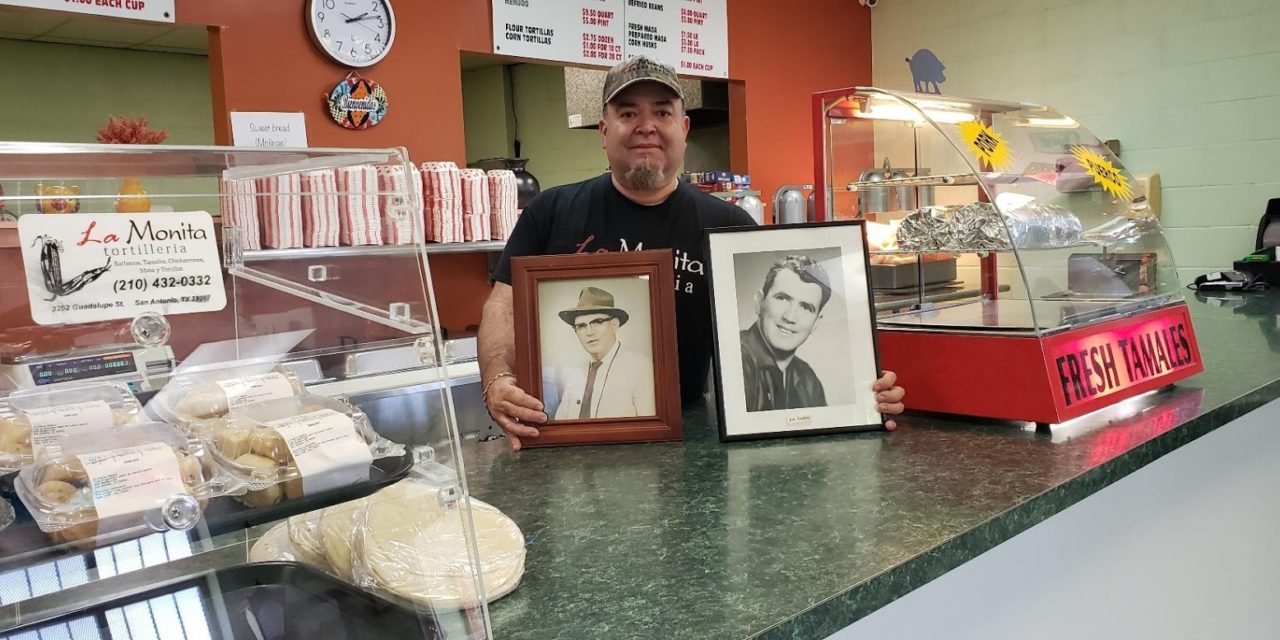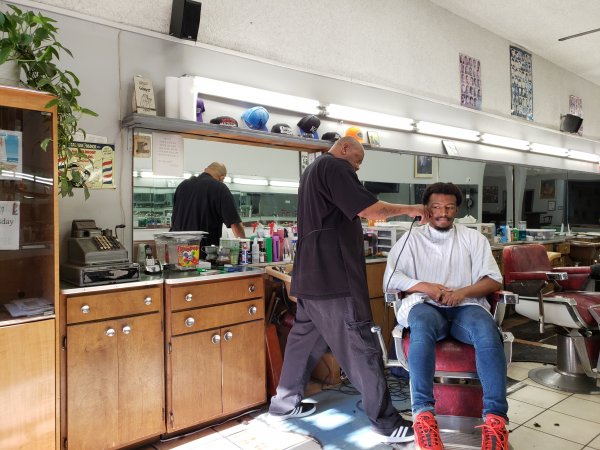Conserving a New Type of Historic Resource
Erin Swicegood’s recently completed graduate terminal project, titled “Celebrating Mom and Pop Shops: The Importance of Legacy Business Programs for Conserving Living Heritage”, explores why legacy businesses are important historic resources to preserve. A pdf copy of her project is available here.
Legacy businesses play a meaningful role in establishing and maintaining the unique character of our cities, communities, and neighborhoods. Legacy businesses are defined as small businesses that have a historic presence in their neighborhood and are culturally significant to a community. With the growth of big box stores, online retail, and rising rent prices, historic small businesses have faced increasing challenges to maintain a presence in their respective communities throughout the United States.

For example, even before the pandemic, closures of small businesses increased in San Francisco from 693 businesses lost in 1994 up to almost 4,000 closures in 2014. The U.S. Small Business Administration recorded 400,000 small business closures throughout the United States in 2019, and the Portland metropolitan area saw 4,648 small businesses close between 2015 to 2016. The increasing closure of these historic small businesses, including the severe impacts of COVID-19, indicates that now is the time to implement a program to protect the most vulnerable of these historic resources.
How Legacy Business Programs Can Help
Legacy business programs celebrate living historic resources in a city and help achieve the preservation of more non-architectural resources. These programs can also increase the diversity in types of resources preserved by establishing equitable practices. These programs can be a celebratory, rather than regulatory, type of historic preservation program. Legacy business programs can operate in different ways depending on local needs. They can offer financial assistance, technical assistance, protective measures against displacement, preservation incentives, and marketing assistance and promotion. Legacy business programs can be created in any city and can fit into already existing support services, whether that be a preservation nonprofit, an office of small business, or an economic development office.

There are three types of legacy business assistance: A program, a registry, and an initiative.
– A program is the most robust form of legacy business assistance and is often administered by a city office due to greater access to funds and staff time.
– A registry implies a list of some sort, similar to the National Register, and celebrates participants in a way that is mostly honorific.
– An initiative is an educational program designed to raise awareness of legacy businesses, frequently administered by preservation nonprofits.
A Call to Action
The need for legacy business programs is apparent now more than ever. Historic small businesses have closed throughout Oregon and around the country, and a legacy business program would offer assistance and support to these businesses that contribute so much to our diverse cultures and communities.
Successful legacy business programs have:
– An equity framework in place. Equity needs to be incorporated into any legacy business program because a one-size-fits-all plan will not include all businesses and business owners. Equitable framework helps increase intergenerational prosperity in communities.
– An informal application process. Focusing on ways to make the application process less regulatory and more celebratory creates a more inviting environment for people and communities who may not always feel comfortable with governmental programs or who may not have the privilege of understanding them.
– Multiple types of assistance. Pairing financial assistance with a robust marketing and support program is the most efficient form of assistance. The creation of toolkits, like succession planning toolkits, are also a key area of success.
– An inclusive age range for determining “legacy” status. Many cities offer flexibility in the age range for businesses to be considered legacy. San Francisco changes the age from 30 to 20 if the business is facing imminent displacement. The City of Seattle chose a lower age range of 10 years to support a more diverse range of businesses and business owners. Supporting a flexible definition of the term legacy can increase the types of businesses and communities that a legacy business program can support.

Legacy business programs, registries, or initiatives can be created in any state or city and are needed now more than ever to help support historic small businesses. Oregon does not currently have a legacy business program, but one could be implemented fairly easily. We must continue to diversify the types of resources preserved and celebrated throughout Oregon and the United States, including legacy businesses!
More information on legacy business programs can be found in Erin’s graduate terminal project, “Celebrating Mom and Pop Shops: The Importance of Legacy Business Programs for Conserving Living Heritage”

